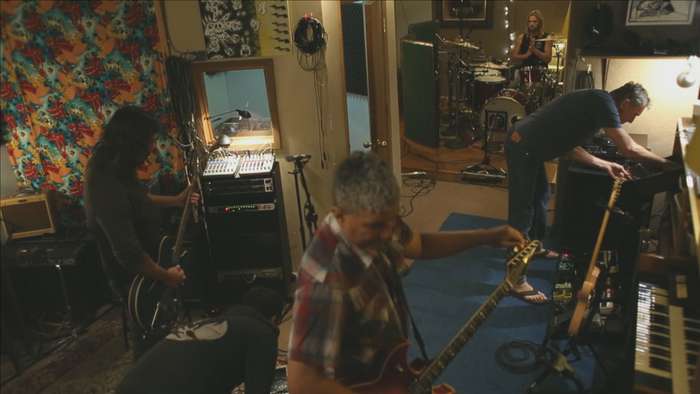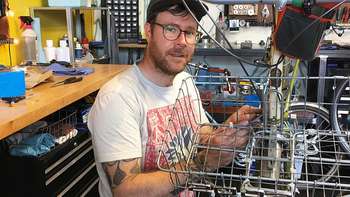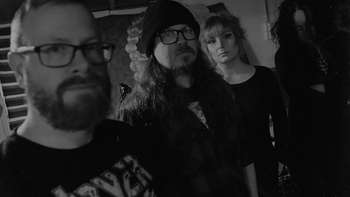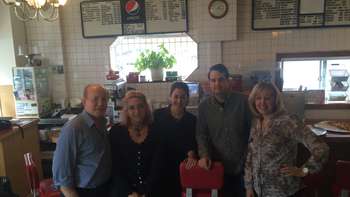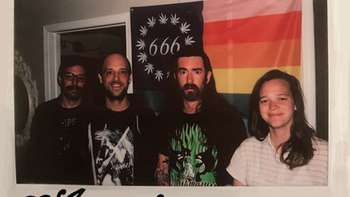How an artist spends their time by day will influence the creative process at night. In Don’t Quit Your Day Job, Scene Point Blank looks at how musicians split their time, and how their careers influence their music (or how their music provides escape).
In this edition, we chat with Don Zientara. Zientara has played with Under Heaven, as well as releasing multiple solo record in recent years. In addition to making music, he records it, owning and operating Inner Ear Studios in Washington, DC, known for records by Minor Threat, Bikini Kill, Dag Nasty, 7 Seconds, Fugazi, Bad Brains, Jawbox, Gogol Bordello and many many more.
Scene Point Blank: Is Inner Ear Studios your main job?
Don Zientara: Yes, it is.
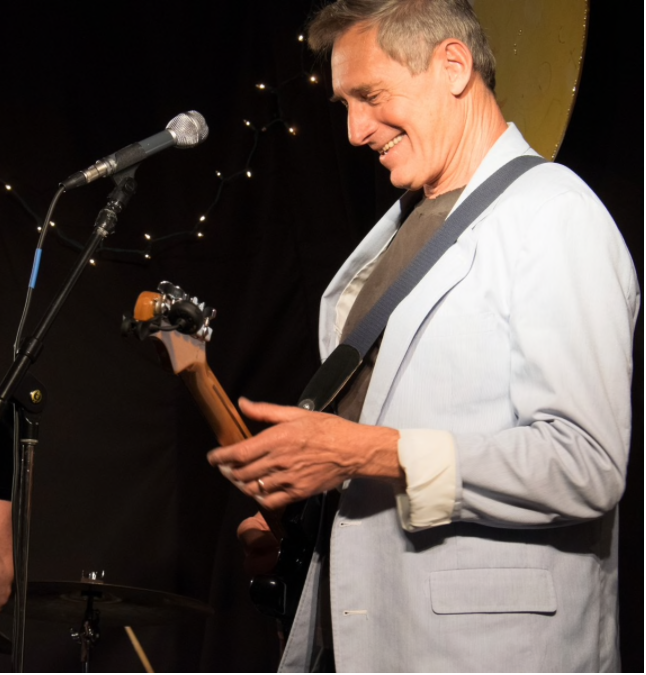
Scene Point Blank: What led you to the audio industry, career wise?
Don Zientara: I grew up in Rochester, NY [where I] had several friends in school who knew quite a bit about electronics and taught me to build/design/repair that sort of equipment. I had old tape recorders all my life. I also wired them so that it was a sound reinforcement system. I experimented with electronic design and function.
- Studied art at Syracuse University. BFA in 1970.
- Attended graduate school at West Virginia University, majoring in painting and printmaking. Studied paper construction and restoration.
- Was drafted into the Army in 1971. Lottery. Number one.
- Signed up for electronics training. After basic training finished, was told there was a surplus of electronic trainees, but would I want to draw and paint portraits for the Army Recruiting Support Center (Cameron Station, Alexandria)?
- Accepted the invitation to work there.
- Applied for, and received a CO (Conscientious Objector) in 1973.
- Went to work for the National Gallery of Art as an exhibits framer and paper conservator.
- After about 5 years, became the NGA's audio engineer.
- Stayed there for another four years, then went on to work as studio manager, then on my own. Have been running Inner Ear Studio ever since.
Scene Point Blank: Do you have a specialized degree/education?
Don Zientara: I have a MFA in painting and printmaking.
Scene Point Blank: How long have you been in this industry? Broadly speaking, how has it changed with technology?
Don Zientara: I’ve been working at this for about 60 years. Seem to think I’ve rolled with the new tech when it arrives, and, more importantly, is useful to me!
Scene Point Blank: You work an Inner Ear Studio, play music, and worked at The National Gallery of Art?
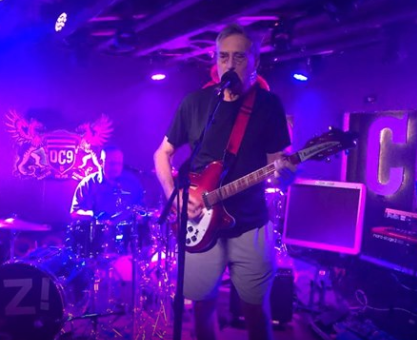 Don Zientara: I work at Inner Ear Studio and play music. I worked at the National Gallery of Art from 1974 - 1983.
Don Zientara: I work at Inner Ear Studio and play music. I worked at the National Gallery of Art from 1974 - 1983.
Scene Point Blank: How would you describe your day-to-day?
Don Zientara: I am a night owl. I usually start work around 1 pm, either mixing a group or recording them. Occasionally, I master an album.
Scene Point Blank: You've worked at the National Gallery of Art in the past and, as mentioned, the Army before that. How did your experiences working for others influence you to start Inner Ear and work for yourself? You said you're a night owl. Did that preference to work beyond 9-to-5 inspire it?
Don Zientara: No, I generally go with the flow.
Scene Point Blank: I imagine that your government jobs didn't have much room for creativity, or did you have a creative outlet?
Don Zientara: It was a terrific job! And working at the NGA was stimulating.
Scene Point Blank: When did you know you were more interested in recording than "the average musician"? Were there conversations with band mates or sound engineers at venues that kickstarted your path or helped you figure it out? When did you know this was something you wanted to focus on?
Don Zientara: I have been doing both all my life. It was an organic thing.
Scene Point Blank: I'd like to talk more about how you both play and record music. Namely, how it affects your creative process. Are you able to write a song without thinking about the more technical audio aspects? Does it affect your live show? Or is it all subconscious?
Don Zientara: I try to separate the two. It’s difficult, but it’s two similar creative processes.
Scene Point Blank: Do you approach writing new music methodically or more impromptu? Do you think that collaborating with so many musicians in the studio has influenced that directly? Any examples or stories?
Don Zientara: Both, depending on how I feel. I treasure the learning experience that I got from seasoned musicians.
Yes, I take to heart their methods and ways to approach music and writing.
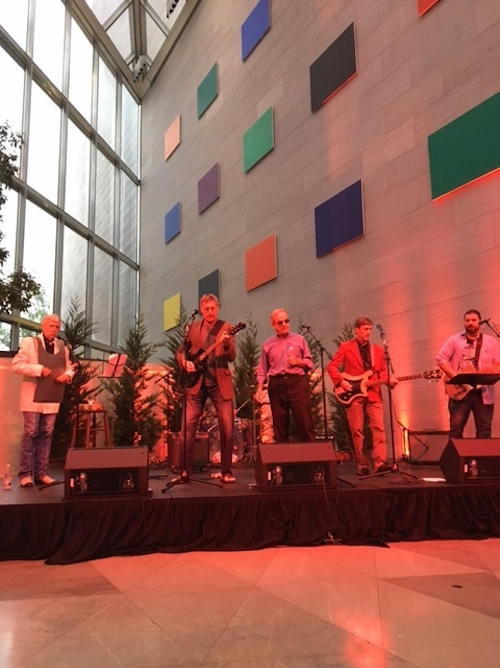
Scene Point Blank: How do you balance your own musical projects with self-employment? How do you make sure you don't burn out on one or the other?
Don Zientara: Good question! Just do either when you can.
Scene Point Blank: How do you tour, when applicable? I imagine scheduling can be problematic.
Don Zientara: I don’t tour generally. I’m very lazy in that respect.
Scene Point Blank: To kind of summarize everything: How intertwined are your artistic and professional lives? Was it a conscious choice to connect or separate them the way you have?
Don Zientara: They are together. Professionalism, if done right, can be very artistic.
Scene Point Blank: People have been discussing the future of the music industry for, seemingly, my whole life. Whatever the future holds, it's pretty clear that people still want recorded music in some format. Given the changing technology, where would you tell somebody who is interested in recording to begin? Are there certain skills or equipment they should master?
Don Zientara: Pretty simple. Get a hold of something to record on and start doing it. No matter how small or big, you need to get into the process. Just make stuff! You’ll figure out what there is to master by doing, reading, talking the art.
Scene Point Blank: Is there a single project you've worked on, professionally, that holds the most personal value to it (e.g. recording a favorite band, mentor, etc)?
Don Zientara: No, no favorites. Every project must get all it can handle. Let other people judge what is good, bad, ugly, fabulous!
Scene Point Blank: What is your next (or most recent) musical project that you perform on?
Don Zientara: I have a lot of recording (live) to do, mixing, and performing at various dives!
